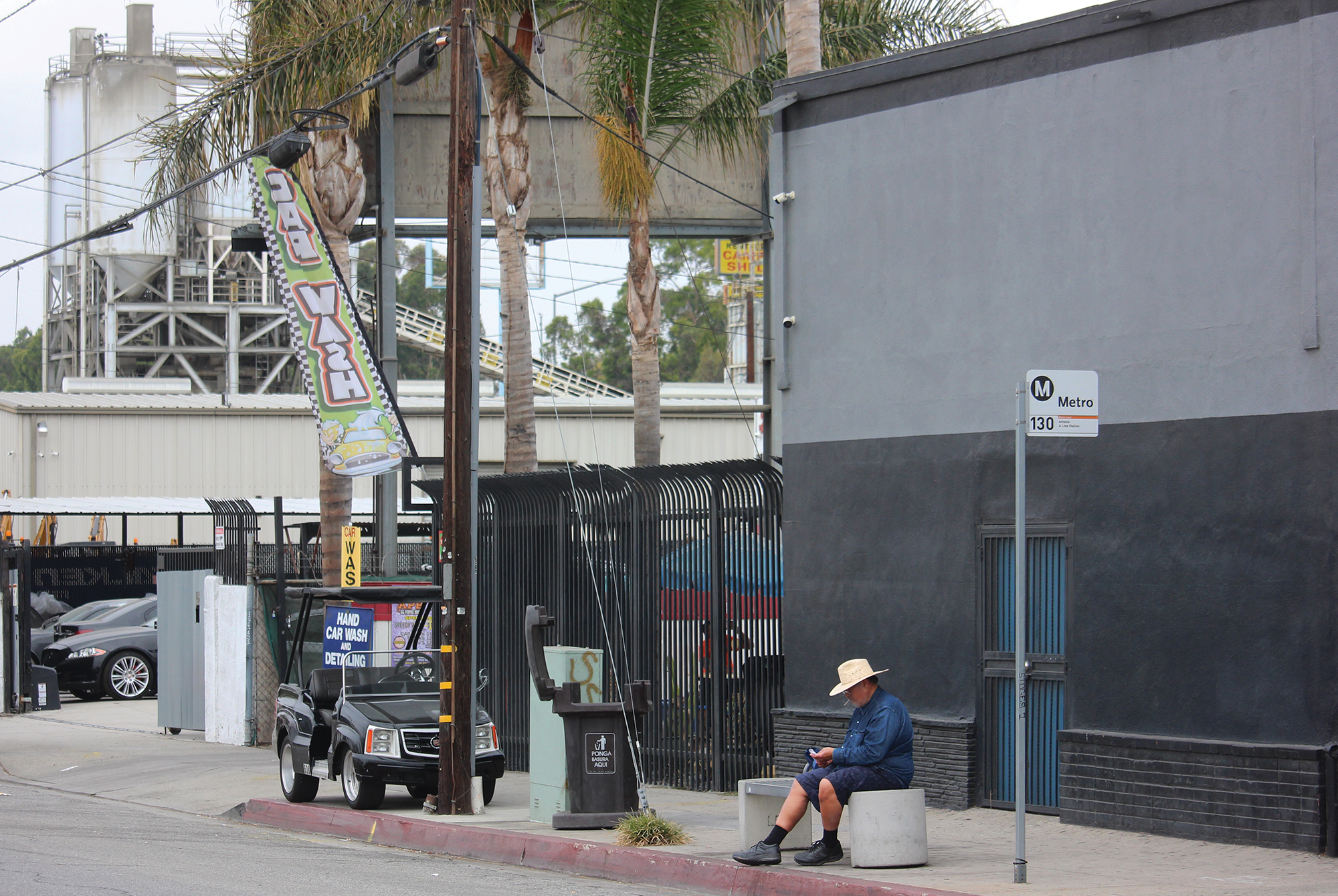
A multi-city construction project to reimagine Artesia Boulevard in Southern California is expected to break ground this winter.
The once-in-a-generation investment—as one Long Beach official put it—includes $20 million to repave the road, install more street lights and crosswalks and upgrade a bike-only lane and other pedestrian-focused improvements across Compton, Long Beach, Cerritos and Paramount and other gateway cities.
City planners believe the improvements will also positively impact business growth along the corridor, specifically in North Long Beach, where business development has been lacking in previous years.
The new highrises that have broken through the city’s skyline in recent years show that developer interest has mostly been focused in Downtown Long Beach, but in the last three years there’s been a growing interest in North Long Beach.
Tom Carpenter, vice president of Frontier and board member of the Uptown Business Improvement District, has first-hand experience investing in the North Long Beach market—particularly on Artesia Boulevard—and believes the upcoming updates will pave the way for more private investments.
Frontier Real Estate Investments is among one of the new developers pioneering private development in North Long Beach. Most recently, the company opened the Uptown Commons, a contemporary retail center with restaurants, a coffee shop and a bank.
“It further enhances that whole area, which is a plus for us,” Carpenter said. “We always hoped that when our project came in that it would spur other projects and just raise the bar for everybody.”
Carpenter added that a lot of investor attention in North Long Beach has mostly concentrated on Atlantic Avenue, another major road that runs from north to south. Current business development there focuses mostly on housing, including townhomes and multi-use lofts led by developer LAB Holding, famously known for the Anti-Mall retail center in Orange County.
“There’s always been a lot of things to talk about for Atlantic, I’d say there’s been less to talk about on Artesia,” Carpenter said.
While housing developments are expected for Atlantic Avenue, the market on Artesia Boulevard caters toward a growing need for local amenities such as restaurants and coffee shops.
“When we looked at different amenities that were lacking in the area, we were really confident that those uses would do really well in this site just because that area is underserved,” Carpenter said.
Alongside financial support from local governments and the private sector, the adoption of new zoning policies in conjunction with the proposed road improvements will pave the way for business growth in the region.
The city council voted in November 2020 to approve the first phase of a rezoning policy specifically for North Long Beach, called the UPLAN, which went into effect this year.
Phase one changed zoning requirements on Atlantic Avenue and Artesia Boulevard to be more uniform. Before the update, Councilman Rex Richardson said it was common to see a “hodgepodge” of businesses and residential buildings placed next to each other. Motorists driving down Artesia might see a gas station next to an auto repair shop next to a duplex.
Richardson said the rezoning change should address those irregularities.
“It created different standards for parking, mixed-use; different standards for medical offices—all of those are built into the zone,” Richardson said. “That helps set the stage for the private realm.”
The investment into Artesia’s redevelopment will also increase lighting in the area, Richardson said, to keep the streets well lit throughout the night for potential shoppers and other pedestrians.
Between the support from local leaders, policy changes and interest from private developers, business growth on Artesia Boulevard still faces a fair share of challenges.
Carpenter said Artesia Boulevard is mostly broken into small parcels as opposed to large swaths of vacant land available for large-scale developments.
“It’s more difficult to come in with larger projects that cleans up large portions of it, so it’s going to take some time,” he said.
For business owners who are already on Artesia Boulevard, some have expressed mixed feelings about the upcoming construction.
John Yim, owner of Louisiana Fried Chicken, said he doesn’t think the improvements will have much of an impact on his business, which is popular among local residents.
That indifference for the development comes from Yim’s 16 years of operating his restaurant at the same shopping center on Artesia Boulevard and Myrtle Avenue and feeling like not much has changed.
In 2014, there were improvements to Artesia Boulevard, though most of the heavy work took place on the border of Compton and Long Beach. Those developments took two months to complete and cost $1.2 million from Proposition C funds. The city of Compton paid a prorated portion of $130,000, which pales in comparison to the proposed road improvements coming this year.
Deonta Douglas, owner of gourmet french fries restaurant Mr. Fries Man on Artesia Boulevard, opened his franchised store in May. Douglas said he is in favor of the road developments if the city can mitigate the potential of increased traffic as construction crews tear up the road, since that could deter customers from shopping at his restaurant.
Richardson said city planners are working to phase the construction in segments, adding that work near Yim’s restaurant and Douglas’s french fry spot would be prioritized and quickly completed.
“If they make it like they said, then I think it will bring out the community to walk more,” Douglas said.
